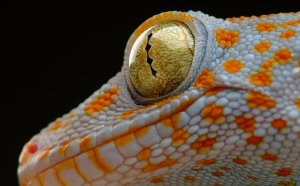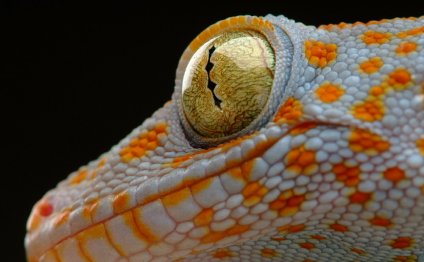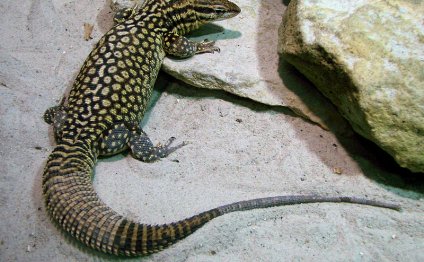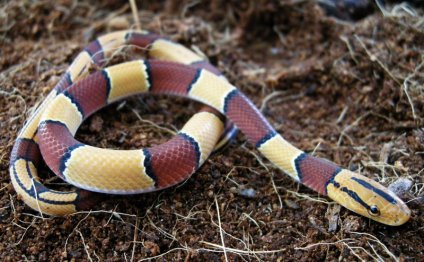
Non poisonous snakes for sale
The best types of pet snakes are suited to their keeper... and get great care!
Snake Information and Care
There are many types of snakes, both small and large, kept as pets. With approximately 2, 900 snake species found all across the world, its not surprising that there are all sorts of snakes readily available to choose from.
Many snakes make good pets because they are quite docile, easy to hold, and easy to care for. Snakes are very clean, virtually odorless, and they are quiet. Other than the large boas and pythons, they don't eat much, so they are inexpensive to feed as well.
All Snakes are very agile animals with a similar body shape. But they do differ in size and temperament. Snakes range in size from a tiny 4 inches (10 cm) in length to over 30 feet (9 m). Those snakes kept as pets are generally species that are less than 5 feet in length. Exceptions to this are some of the larger boas and pythons. The lifespan of snakes kept in captivity is also variable. Common rat snakes and king snakes can live over 15 years while pythons and boas can live more than 20 years.
Snake types range from those that are great for beginners to those that need an experienced keeper. Their instinctive aggressiveness is quite variable. There are those that always bite, those that occasionally bite, and others that seldom or never bite. In general, captive bred snakes tend to have a more calm, relaxed nature, and are easier to tame than wild caught specimens. Different types of snakes will also have their particular feeding and care requirements.
When getting your first snake, its a good idea to take some time looking at and learning about the different types of snakes and then choose the right snake for you. Good beginner snakes are smaller in size, usually available as captive bred specimens, and have a more docile temperament. Some popular starter snakes of this sort include the king snake, corn snake, garter snake, rat snake, milk snake and the ball python.
Ball Python Care
Report Broken Video
Caring For Your Ball Python
Steph from LLLReptile discusses basic care for ball pythons, and we show one of our beautiful baby Spider Ball Pythons!
Cool Pets! Reptiles
Report Broken Video
Reptiles make very cool pets!
Pick your favorite snake, lizard, or turtle and start an exciting adventure into the Animal World of Reptiles! Reptiles are quiet and undemanding but are very fun to watch. Many are quite small, so need very little space and are easy to feed. They are also clean, most with no odor at all, making them easy to care for.
Snakes don't play with toys, rather they rest a lot, eat a little, and will constantly be moving around their environment exploring, poking and prodding. Snakes are both strong and agile. They are not easily confined and if there is an unsecured opening, they will find it and escape. If the decor or water containers are too lightweight or if they are heavy but not solidly placed, snakes will knock them over and can possibly be injured. Most snakes are best housed singly. Many are cannibals, others that make great pets simple don't make good cage mates, and with just one you lessen the chance of transferring diseases.
- Snake Cages - A screen topped aquarium is often used to house a small snake. More elaborate enclosures are used for large species, like large terrariums and even special snake rooms.
- Cage Size - Housing size should have the diagonal of the cage at least as long as the snake.
- Cage top - The enclosure needs a secure, escape proof top or access opening.
- Ventilation - Good ventilation and air circulation are important to prevent excessive humidity. Humidity can cause bacterial and fungal growth, and these can lead to infections.
- Floor covering - The material on the floor, the substrate, should be absorbent (like bark or rabbit pellets) or else use a reptile carpet. It is not recommended to use gravel, stones, soil or dirt as they are hard to keep clean. Provide sand in a plastic box for burrowing snakes.
- Decor - Keep the decor simple and suitable for the type of snake you are housing.
- Hiding Place - All snakes need a hiding place of some sort. A climbing limb with vining, a bark slab, a piece of splinter-free driftwood, a box or a ceramic log placed on the cool side of the cage, all these can work well as hiding places.
- Plants - Plants are fine for some snake. Check to see if they are suitable for the type of snake you are housing.
- Water - There must to be fresh water for the snake to drink and occasionally bathe in. Provide a sturdy container for drinking water, and a removable bath tub.
Provide a warm broad spectrum light 10 to 12 hours per day. For most snakes that are not nocturnal, natural daylight is ideal, though not usually practical. The next best solution is to provide artificial light. An ultraviolet light source, Vitalites, are better than fluorescent or incandescent light bulbs. You can gradually increase or decrease the number of hours of light in the spring, fall, and winter to simulate natural daylight.
Snakes generate little or no internal heat and they do not perspire. Heating is essential for snakes. Below a certain temperature the snake's body simply does not work. Above a certain temperature their bodies will go out of control. Either extreme will kill a snake. They must rely on the environment to furnish the desired range of temperatures.
Most snakes will need a substrate heating device, but also a cool shade area to move to when they are too warm. Arrange the cage so your snake can find proper temperatures. Providing a thermal gradient in the aquarium works best, with a warm basking area on one end and a cool area on the other end. For an information on different types of heating devices, see Reptile Care: Heating
All snakes are carnivores, and their digestive systems are designed to eat whole animals for a complete diet. They are never vegetarians. Their diets range from rodents, fish, worms, frogs, and amphibians to lizards, insects, and often times other snakes. Specific foods and how to feed are indicated in the snake guide describing your pet. See: Snakes: Species Guides for All Types of Snakes You should sprinkle a vitamin supplement of calcium and vitamin D on their food.
what is the difference between speed and velocity in physics how to improve network connection on xbox one What does diminish mean? How to get clay in animal crossing? How to make qr code? How to get rid of squash bugs? Why is skin and tips of fingers along eith toes so dry? advice from lichess on how to get better as a beginner stoic advice when you feel down How to play guitar? xenoverse 2 how to get all awoken skills How to craft a blast furnace? How to tell if a necklace is real gold? what is the difference between service and hospitality What time does outer banks come out eastern time? how much can i expect to make as a seasonal driver helper ups What tips do you use for royal icing bags? What goes good with rib tips? How to teleport? What does superfluous mean? Helpful tips for real estate agents when working with buyers and sellers? identify four ways to improve communications with a person who is blind or has a visual impairment how to improve reading speed and comprehension How to pronounce ng? how to get wii u usb helper supervisors should seek to improve auditors’ moods and flow with what job conditions? what is the definition of a vision statement how social media affects our communication skills what is competition science definition How to grill pork chops? advice what to do with deferred compensation after retirement when can you apply for widow's benefits What is my attachment style? what skills do you need to be a blogger why do british deserve benefits How to get smell and taste back? What are all the sports in the olympics? What rising sign meaning?RELATED VIDEO

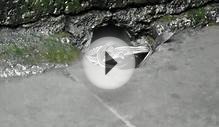
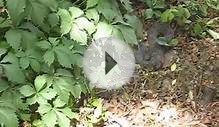
Share this Post
Related posts
Colorful lizard
A very large species of chameleon that is endemic to forests in eastern and northern Madagascar. They reach up to 68 cm (27…
Read MoreExotic venomous Snakes for sale
Whitefish, MT Price varies GREEN BUSH VIPER ATHERIS SQUAMIGERIA FIELD COLLECTED DEMOCRATIC REPUBLIC OF THE CONGO APPROXIMATELY…
Read More
